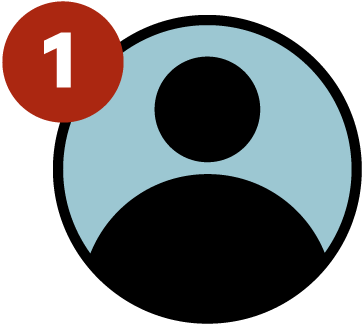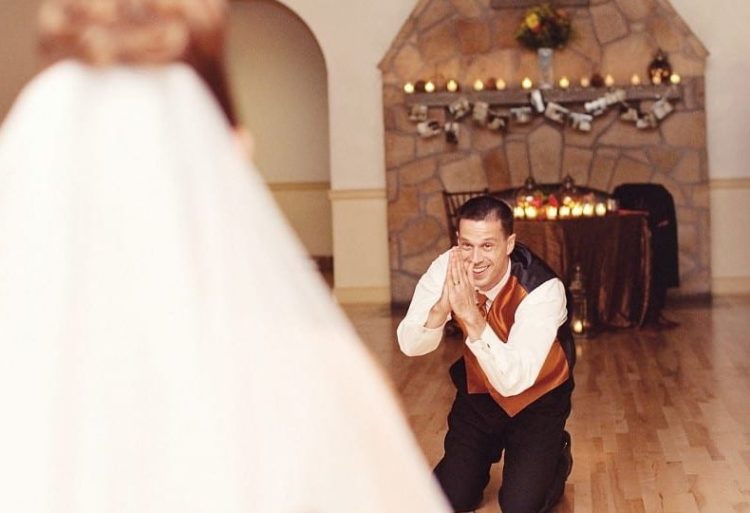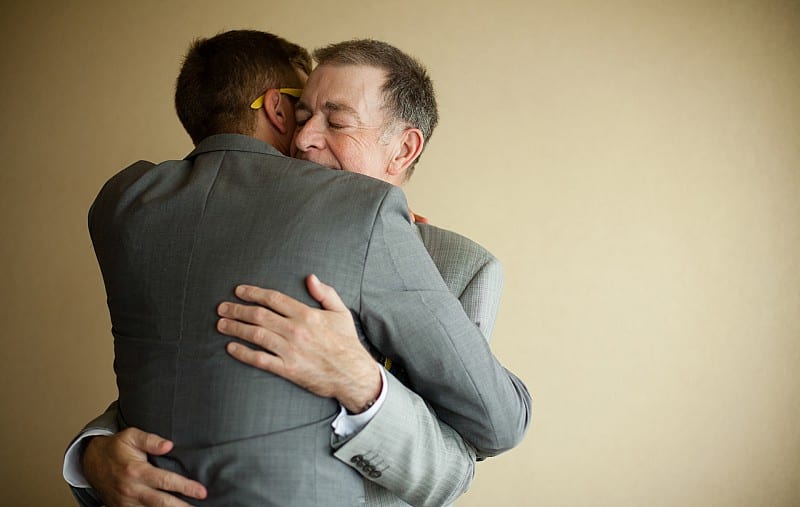
Break-ups suck. Virtually everyone goes through at least one. And divorce is even more brutal, especially considering nearly half of couples divorce in the first four or five years of being married. As it is a quintessential human struggle, going through a divorce has been the inspiration for many films and TV series, and these stories are usually complex by design. Unlike a house fire or an alien snapping his fingers, there’s no patsy to peg when two people can’t make it work. And unless there was cheating or abuse, neither spouse is the villain in their divorce story.
So how do we watch films about divorce? Is it even possible to watch a movie like Noah Baumbach’s new Marriage Story with one’s partner, or is that just asking for a fight? This particular film is loosely based on Baumbach’s 2013 divorce from actress Jennifer Jason Leigh, which means it locks onto the failings of well-intentioned people with a realism that has impressed most critics. Watching the film, you get the sense that Baumbach believes in the power of honest communication, though he concedes that our passions take us in different directions, even if we’re propelled away from people we love.
The film, without spoiling details, excels in its orchestration of a slow, painful divergence between two main characters played by Adam Driver and Scarlett Johansson. Neither one is necessarily the “bad guy,” and they both spend more time trying to learn how to move forward with their decision than bask in bombastic acts of revenge. It’s an intense film, but a relatively quiet one; neither of the two lovers crash a car into their ex’s newly built tennis court or smash dishes against the wall.
Science says: Watching movies about marriage can improve yours
Research suggests that films like Marriage Story can help couples who are on the fence between sticking together and cutting their losses. It can also prove therapeutic for couples who are going through a rough patch. Ronald Rogge, associate professor of clinical psychology at the University of Rochester, tested this theory by sitting couples down to watch five pre-selected films about relationships. The couples took in these films over the span of a month, and then they met to discuss them.
“The hope is to improve the odds against divorce,” Rogge said regarding his study in an interview with USA Today. “We’re looking for the best way to strengthen marriages while they are still happy. Most people enjoy watching movies, and this is a model where, we, as therapists and researchers, don’t need to formally instruct participants. They can do it on their own.”

This practice grew out of a study conducted by Rogge and fellow researcher Tom Bradbury, professor of psychology and co-director of the Relationship Institute at UCLA. Of the 172 married couples in the study, 78.5 percent were still married after 11 years. The researchers found that couples who’d watched relationship-centric movies together, and talked about what they saw, were less likely to divorce.
These “relationship movies” are not to be confused with romantic comedies, which have a mixed reputation among relationship experts. It’s unclear whether they create unrealistic expectations for relationships, so we’ll have to set those aside. If you’re looking to figure out whether a film about marriage is good for your marriage, you should stick to movies with realistic scripts hinged on genuine emotions. That seems to be the sweet spot.
Seeing how other couples act gives us a peek behind the curtain
“People use TV and film a lot to understand their lives,” said Dr. Orna Guralnik, a clinical psychologist and psychoanalyst based in New York and host of Showtime’s Couples Therapy. The docuseries follows Dr. Guralnik as she leads regular sessions with four different couples. Over the course of the season, you watch these men and women break down on camera, coaxed by Dr. Guralnik into analyzing their own shortcomings.
The show’s candor has proven helpful to viewers, according to Dr. Guralnik. “Specific things we address have really helped people,” she explained, “such as tying early attachment history and trauma history to contemporary issues couples face. Just making that link has been enlightening for people.”
Every relationship, argument, or even divorce has two sides, but we’re not usually privy to every facet. A show like Couples Therapy or a film like Marriage Story offers a peek behind the curtain, and that experience alone encourages empathy. And if you’re working with your partner to understand someone else’s marriage, fictional or otherwise, you’ll likely stumble upon interesting conversation fodder once you’re both finished watching. Those conversations aren’t just interesting; they’re emotionally productive.
“I think [the show] is helpful in many different ways,” Dr. Guralnik said. “It breaks through this firewall of privacy around couples dynamics and couples conflicts,” said Guralnik. “People can see that other people struggle the way they struggle. It’s not a shameful flaw. […] Couples Therapy also teaches people about dynamics, about how the past shows up in the present, how to talk about sensitive topics, like class and race.”
How to tell a healthy relationship story from a toxic one
While there’s nothing wrong with mining relationship issues for comic relief, you’re not going to find a ton of useful material to discuss with your spouse in a slapstick comedy. For example, early Judd Apatow projects like Superbad might not nudge you and your wife into some therapeutic real talk, but his later stuff—This Is 40, Funny People—demonstrates a level of emotional intelligence that can actually spark something helpful. Bottom line: a marriage story has to at least reach for realism in order to help you.
Baumbach’s Marriage Story falls in line with much of what Guralnik believes is appropriate for purposeful couple-watching. The film doesn’t try to distract the viewer with outrageous behavior, and it asks you to wallow in the grey area between Driver and Johansson’s characters. “Conflict is often motivated by unconscious forces and you need patience and curiosity to really understand what’s going on,” said Guralnik.
In other words, fighting with your spouse involves a ton of tiny variables, and you need to speak the right language to decode it all. If you can’t get to a therapist like Guralnik right away, a well-written movie or TV show can help you take the first steps toward reconciliation.

















